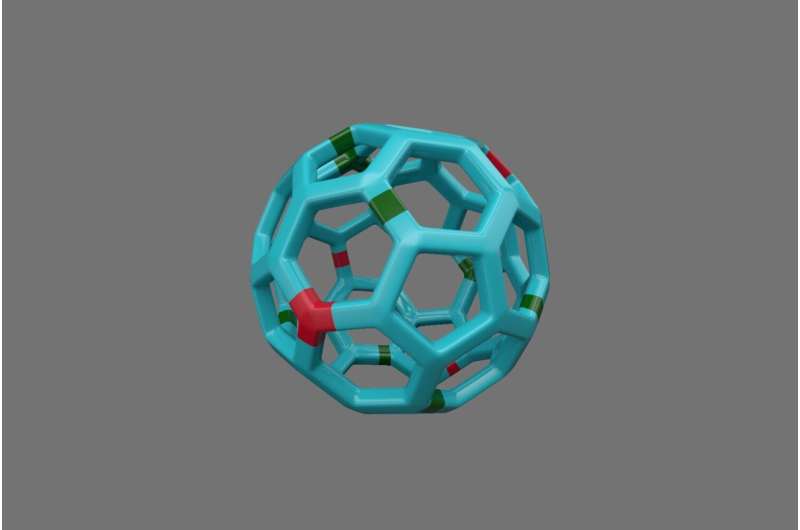This article has been reviewed according to Science X's editorial process and policies. Editors have highlighted the following attributes while ensuring the content's credibility:
fact-checked
peer-reviewed publication
trusted source
proofread
Researchers develop a new vaccine additive that creates a stronger, tunable immune response

Researchers at Stanford Engineering have developed a nanoparticle platform that could make existing vaccines more effective, including those for influenza, COVID-19, and HIV. In addition to helping vaccine candidates produce stronger, longer-lasting immune responses, the platform will allow researchers to elicit and test different types of immune responses to determine what is most effective for protecting against specific pathogens.
"These nanoparticles elicit stronger, more robust immune responses, and the breadth of our platform allows us to readily tune the type of immune response in a way that just was not feasible with previous technologies," said Eric Appel, an associate professor of materials science and engineering and senior author on the paper published Aug. 7 in Science Advances. "This can be a tool to understand how different types of immune responses give rise to better or worse protection—it was impossible to even ask that question before."
A better adjuvant
Most modern vaccines teach our immune systems to recognize and fight off infections by introducing only a piece of a pathogen—such as the coronavirus's now-infamous spike protein—instead of the whole virus. On their own, these fragments may not cause much of a reaction, so vaccines also contain adjuvants—additives that help stimulate and shape the body's immune response. But there are currently only a handful of adjuvants available for clinical use and their effectiveness can vary widely.
"We wanted to create as potent of an adjuvant as possible," said Ben Ou, a doctoral student in Appel's lab and first author on the paper. "We combined two different adjuvant technologies to create a nanoparticle platform that will activate different immune pathways and improve vaccine responses."
The researchers determined that they could attach molecules called toll-like receptor agonists, or TLR agonists, which interact with receptors on our innate immune cells, to a base nanoparticle made of saponin molecules, which have been used as effective adjuvants for decades, including in the Novavax COVID-19 vaccine. The result was an adjuvant that acted through multiple immune pathways, producing a broad, strong, long-lasting response.
Ou, Appel, and their colleagues tested their adjuvants, collectively called TLRa-SNP adjuvants, with both COVID-19 and HIV vaccine candidates. In both cases, the adjuvants greatly improved the effectiveness of the vaccines. In comparison to versions paired with an existing adjuvant, the vaccines were more potent and lasted longer. They also created immune responses that could detect and neutralize multiple versions of the pathogens—with the TLRa-SNP adjuvants, the COVID-19 vaccine candidate was effective against the original virus as well as delta, omicron, and other variants.
Finding the right immune response
There are multiple types of TLR agonists, each of which binds to a different immune receptor. The researchers created five different versions of their adjuvants using the saponin nanoparticle as a base platform and swapping the attached TLR agonists. While all the adjuvants were effective, each version created a slightly different type of immune response, activating different signaling proteins and prompting different actions from immune cells.
"All of our adjuvants improve overall vaccine responses, but the specific types of improvements are different," Ou said. "If we know that a specific type of immune activation will confer better protection, we now have a platform that will allow you to pick the specific formulation that will drive that distinct response."
With existing adjuvants, researchers can test which one creates the strongest immune response when paired with a particular vaccine, but the adjuvants are too different to allow investigations into which type of immune response would be most effective at protecting against infection for a given pathogen. The interchangeability of the TLR agonists in the TLRa-SNP adjuvants would allow researchers to tweak the nature of the immune response while maintaining the strong immune activation created by the saponin nanoparticle base.
There are other TLR agonists that could be paired with this platform, beyond the five that they tested in this paper, Ou said. He is interested in investigating others, as well as investigating the effects of using more than one type of TLR agonist at a time—the researchers have already shown that this is possible and hope to make additional bespoke nanoparticle adjuvants in the future, with the goal of developing the most effective adjuvants possible.
"This platform approach will open up opportunities for people in the field to ask more probing questions about what immunology works better in different contexts," Appel said. "And it's also making significantly better adjuvants."
More information: Ben Ou et al, Saponin Nanoparticle Adjuvants Incorporating Toll-Like Receptor Agonists Drive Distinct Immune Signatures and Potent Vaccine Responses, Science Advances (2024). DOI: 10.1126/sciadv.adn7187. www.science.org/doi/10.1126/sciadv.adn7187





















